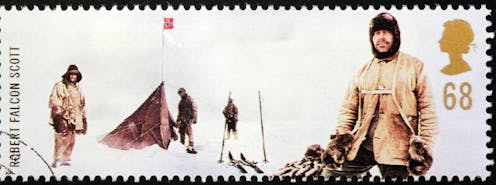Antarctica is the most inhospitable continent on earth. It’s dry, cold, and completely dark for months of the year. Edwardian explorers were some of the first to brave the Antarctic winter, developing new knowledge still drawn upon by scientists today.
The Discovery expedition (1901–4) played a key role in the history of polar exploration. It was led by the Royal Navy commander Robert Falcon Scott , a pioneering polar explorer who died in 1912 after attempting to reach the south pole . The expedition’s third lieutenant was Ernest Shackleton , who led three further journeys to the continent.

Both men would become household names, and it was the Discovery expedition that launched their careers. Together, they set a record in December 1902, coming closer to the south pole than anyone had before. The journey also shaped how both men thought about health, particularly how to prevent and treat scurvy.
My research examined how the expedition’s officers, medics and organisers sought to keep the explorers healthy in Antarctica, particularly during the polar winter. Because of this work, nobody on the expedition died from poor health (though two men were killed in accidents). Food was a matter of life or death for polar explorers.
Problems with tinned foods are widely believed to have contributed to the demise of the Franklin expedition , which went missing in the Arctic in the late 1840s. Concerns about food were also driven by the idea that badly preserved meat caused scurvy .























